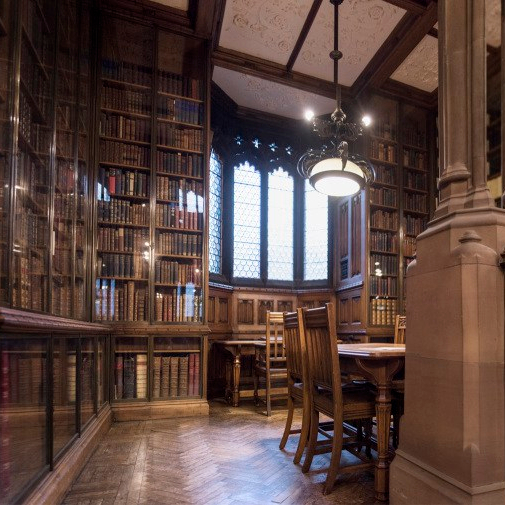Over the last year I have been conducting research into the ways to combat the lack of diversity in heritage institutions. In a series of blog posts I explored practical ways to challenge problematic labelling, highlight erased groups, and improve overall representation in exhibitions.
I found, in all these instances, collaboration with under-represented groups is imperative. Collaboration resulted in fair representation in exhibitions, increased visitor numbers and increased diversity in visitors.(1) When collaborating with under-served groups, heritage spaces must ensure they do this ethically by fully understanding privilege, lived experience and emotional labour.
I call this empowered collaboration.
Definition of Empowered Collaboration:
Empowered collaboration seeks to create archival labels and exhibition content with an intersectional group made up of individuals from under-represented groups(2) (an advisory board) with sensitivity to privilege and emotional labour.
Foundations of Empowered Collaboration:
Understanding Privilege
Privilege is defined as an unearned set of characteristics that do not negatively impact daily life. It is important to have knowledge of your own experience before working with under-served groups as they may not experience these privileges, so will have vastly different life experiences, thoughts and ideas.
The most common forms of privilege in the cultural sector include:
- Class Privilege: 61.4% of the workforce has a postgraduate qualification. The highest qualification of most of the UK general population is A-level or equivalent.(3)
- White Race, Ethnicity, and Culture Privilege: Less than 4% of the workforce identify as BAME.(4)
- Ability Privilege: 84.1% of the workforce do not experience long-term health issues, but over 5% has an illness that affects their work.(5)
- Hetero-normative and Cisgender Privilege: No statistics exist for the cultural sector, but we do know only 2% of the population identify as LGBTQ+.(6)
When an individual understands their own privilege they are able to fully listen and respect the thoughts and experience of another.
Respecting Lived Experiences
The lived experience of an individual mixed with their work experiences creates a status of Expert by Experience. Marginalised groups will have a vastly different life experience from the majority of museum and gallery visitors, and therefore will view the workplace, archives and exhibition through a different lens. They will not be trained to think in the same way as museum or archive professionals, it is important these ideas are respected and considered.
Understanding Emotional Labour
In 1986 Arlie Hochschild coined the term ‘emotional labour’ in her book The Managed Heart, she described it to mean someone who regulates their own feelings and attempts to shape the emotions of others to get the job done. It uses a disproportionate amount of emotional resources and leaves the individual drained. This burden is larger when it is an individual of a marginalised group attempting to explain their lived experience to a person with privilege.
How does this Affect Empowered Collaboration?
When working with an advisory group to assist with archives or exhibitions it must be understood that they are being asked to commit large amounts of emotional labour while using their life experience to assist the institution, often with no or minimal financial backing. Therefore we must find ways to reduce the risk to their emotional health, by removing exploitation of their status as expert by experience and emotional labour. I have listed some steps below.
- Acknowledgements for collaboration: e.g. Online promotion, interpretation, thank you emails.
- Free lunches during consultation.
- Gift vouchers to say thank you.
- Remote contribution options (Skype etc) for wider reach.
- Invitation to exhibition openings.
These are some initial ideas and suggestions. I am currently working towards creating a training pack for empowered collaboration within cultural institutions. It will discuss topics such as: What is empowered collaboration? How to build an advisory board, and Sensitivity training: privilege, expert by experience and emotional labour.
If you would like to know more, or collaborate, follow or message me on twitter: @jasskthethi
Thanks so much for reading.
Jasspreet Thethi, Reader Services Assistant, John Rylands Library
(1) Thethi, J, (2018) ‘Archives and Inclusivity: Exhibitions for all’, available at: https://rylandscollections.wordpress.com/2018/10/01/archives-and-inclusivity-exhibitions-for-all/.
(2) Including but not limited to: first peoples, LGBTQIA+, neuro-divergent, differently abled, women of Colour and working class.
(3) Cilip (2015) ‘A study of the UK information workforce’ available at: https://archive.cilip.org.uk/sites/default/files/documents/executive_summary_nov_2015-5_a4web_0.pdf.
(4) Ibid.
(5) Ibid.
(6) Office for National statistics (2016) Sexual Identity, UK, available at: https://www.ons.gov.uk/peoplepopulationandcommunity/culturalidentity/sexuality/bulletins/sexualidentityuk/2016.


Leave a comment